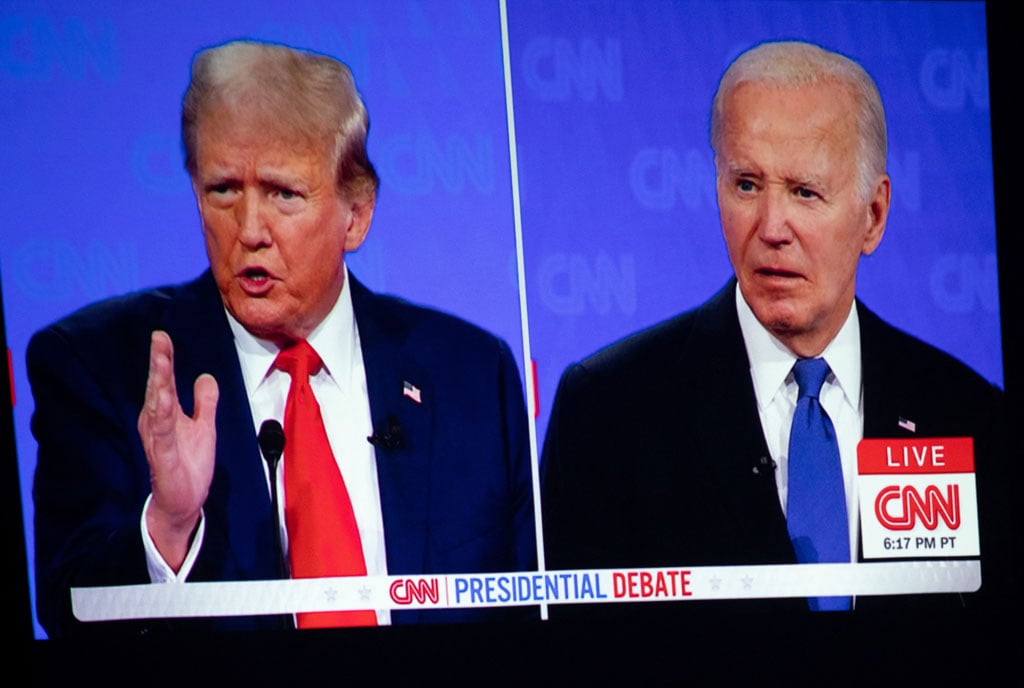Prime
NWSC to disconnect hospitals over bills

A caregiver fetches water at Nebbi General Hospital. Photo | Patrick Okaba
What you need to know:
- This publication saw a copy of the May 5 letter in which Mr Silver Mugisha, the NWSC managing director, wrote to Ms Diana Atwiine, the Permanent Secretary in the Ministry of Health, asking the ministry to clear the bills.
The National Water and Sewerage Corporation (NWSC) is demanding that the Health ministry clears Shs1.67 billion water bills in Nebbi, Gulu and Arua referral hospitals or risk disconnection.
Mr Ivan Tekkakwo, the NWSC spokesman for northern Uganda, said the corporation is engaging the ministry on the matter.
Mr Tekkakwo said Gulu Regional Referral Hospital owes the corporation Shs656.6m, Arua Regional Referral Hospital (Shs224.2m) and Nebbi General Hospital (Shs794.3m).
“This has greatly affected the cash inflows of the corporation and impacts negatively on the public service delivery initiatives,” Mr Tekakwo added.
Of the accumulated unpaid water bills of Gulu Regional Referral Hospital, Daily Monitor has learnt that Shs272.88m was carried forward from the unsettled water bills for the Financial Year (FY) 2021/2022 while others were from the FY2022/2023.
This publication saw a copy of the May 5 letter in which Mr Silver Mugisha, the NWSC managing director, wrote to Ms Diana Atwiine, the Permanent Secretary in the Ministry of Health, asking the ministry to clear the bills.
“As of March 31, Nebbi General Hospital had accumulated unpaid water bills to the tune of Shs794.3 million, which has remained unpaid for the FY2021/2022,” the letter read.
“We, therefore, request you to arrange for payment of the outstanding bill within seven days. If no payment is received, the corporation will have no option but to disconnect service without any further communication,” Mr Mugisha wrote.
The Health ministry, however, distanced itself from the matter because each of the hospitals is allocated funds from which they budget for operations.
Ms Odiirah Kemerwa, the Health ministry’s junior spokesperson, said the matter was of an administrative nature at the levels of the affected hospitals. Ms Odiirah said their management was better placed to respond to it.
“The administrators of those hospitals can best respond to that matter, they have budgets and they are responsible for planning for all those operations costs, let them explain,” she said.
According to NWSC, Nebbi General Hospital’s bills started accumulating 10 years ago.
Mr Geoffrey Mwesigye, the branch manager of NWSC in Nebbi, said the bills escalated further during the renovation period. This was also attributed to the contractor, who had their staff occupying some of the hospital’s staff buildings, and utilising water for three years.
“Due to non-compliance by Nebbi hospital to pay water bills, the cost of running a generator at a water plant when electricity is off, on daily records, has hit 4,000 litres of fuel to run the treatment plant,” he added.
When contacted, Dr Peter Mukobi, the Gulu Referral Hospital Director, referred this newspaper to Mr James Ojwang, the principal hospital administrator.
However, Mr Ojwang could not be reached since his known numbers were unavailable by press time.
Dr Justine Okwairwoth, the Nebbi District health officer, expressed concerns about the potential closure of the hospital in the event of a disconnection.
“Disconnecting Nebbi General Hospital from the water supply by NWSC will cause more misery to the whole country since the hospital relies on NWSC without any other alternative water source. The available solar-powered water source isn’t reliable enough to supply the whole hospital,” she said.
During the construction of new wards at the hospital in 2015, Dr Okwairwoth highlighted that 227 rooms, along with 113 flush toilets, were added. However, this expansion contributed to the accumulation of bills, as there was insufficient budget allocation to cover the increased water usage.


